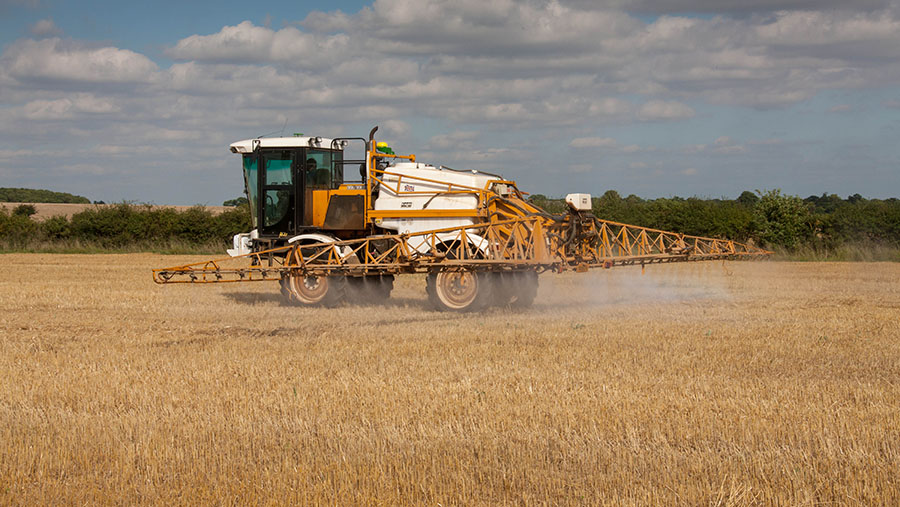CropLife argues case for plant protection products
 © Tim Scrivener
© Tim Scrivener A new report calls for a rethink of “overly restrictive” regulation of plant protection products (PPPs) inherited from the EU amid a warning that higher crop yields critical to UK food security won’t be achieved without synthetic pesticides.
The report, commissioned by CropLifeUK, the body representing the UK’s plant science industry, says food security, avoiding biodiversity harms and achieving net zero by 2050 – what it refers to as “agriculture’s trilemma” – are unattainable without increasing crop production in ways that use land and inputs more efficiently.
Long-term studies have shown that the yield difference between cereal plots treated with herbicides and those untreated is significant, it points out.
See also: Defra confirms continued access to EU-treated seeds and pesticides
The report’s author, independent economic consultant Sean Rickard, says use of PPPs, what he terms as “sustainable intensification”, will need to remain integral to crop protection strategies, more so as crops come under greater threat from pests due to climate change.
Five key findings in the report
- Artificial intelligence will enable plant protection product (PPP) application with pinpoint accuracy
- High crop yields depend on the precision, timing and quantities of PPPs applied
- Sparing land for nature will require significant crop yield increases
- Environmental damage historically linked to PPP use was often due to poor agronomic skills and practices
- The pace of take-up of precision technologies needs to be speeded up
The report suggests that targeted use of PPPs is a better way to meet food security and environmental challenges than low-yield farming – it “emphatically” rejects this as a solution to agriculture’s trilemma as it would require more land to be brought under production.
“Avoiding the large-scale expansion of cropping areas to ‘spare land for nature’ will require significant increases in crop yields,” it says.
In his report, Mr Rickard supports maintaining existing high standards of PPP regulation, but says this should be “pragmatic and evidence-led”.
“Many of the current regulatory approaches inherited from the EU are based on an overly restrictive and often disproportionate interpretation of the precautionary principle.”
Overuse of pesticides has been blamed for environmental harms, but new technologies will allow their targeted use to ensure “markedly superior levels of efficacy and environmental benefits”.
“The ability to apply target-specific, minimal quantities of PPPs promises a step change in the efficiency of farming operations to exceptional levels of sophistication; not only will superior efficacy become the norm, but also, by approaching the ultimate goal of zero waste, they will involve less harm to the environment,” the report states.
Moral endeavour
Seeking to provide the world’s population— particularly the poor—with access to affordable livestock-based proteins that are reliant on cereal crops is a “moral endeavour”, it adds.
More than half of cereals grown in the UK is used for animal feed.
“To match this growth of demand farm outputs must rise, but in order to protect the world’s biodiversity this needs to be done without increasing the total area of agricultural land,” the report maintains.
“This places the burden of reducing the risk of food insecurity on yield growth, particularly crop yields.”
Soil Association head of farming policy Gareth Morgan said: “Humanity cannot survive without nature and studies show that widespread pesticide use is driving declines of nature, both on and off farmland.
“Allowing more pesticides into our environment at a time when wildlife populations are plummeting and when large numbers of farmers are seeking to move away from these expensive inputs would be a big mistake.
“The food system is complex and a simplistic focus on intensification won’t make for a healthy planet or healthy diets.
“We aren’t feeding the world right now, the world is feeding intensive livestock, so we must move away from a system where intensively produced grain is fed to livestock and instead find more diverse sources of protein for our diets.”